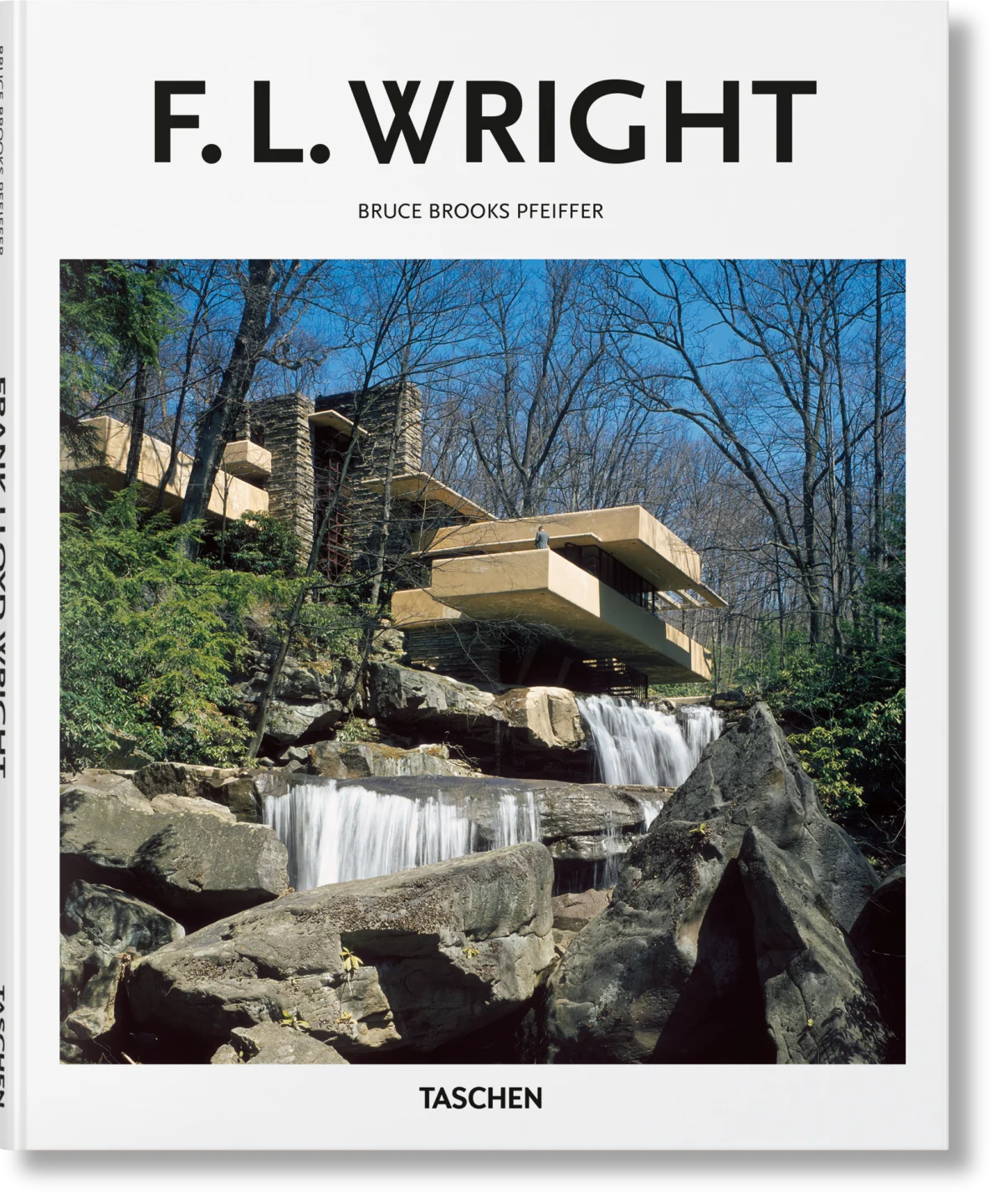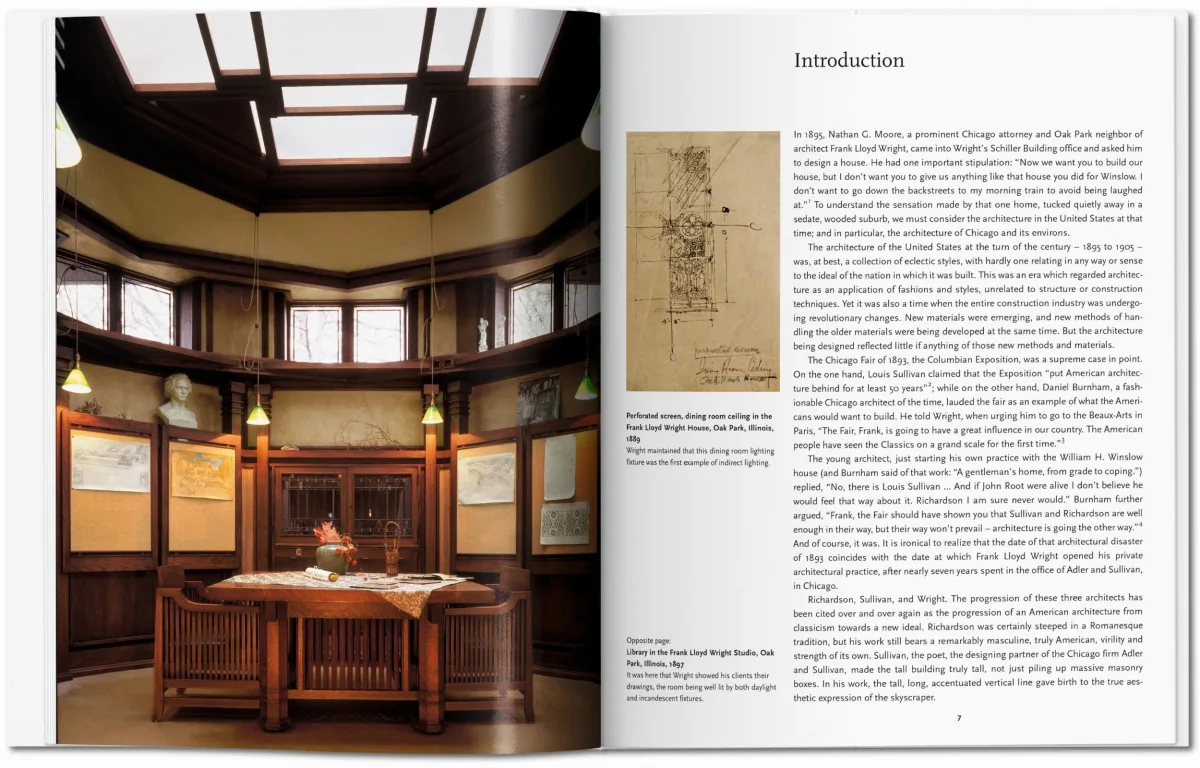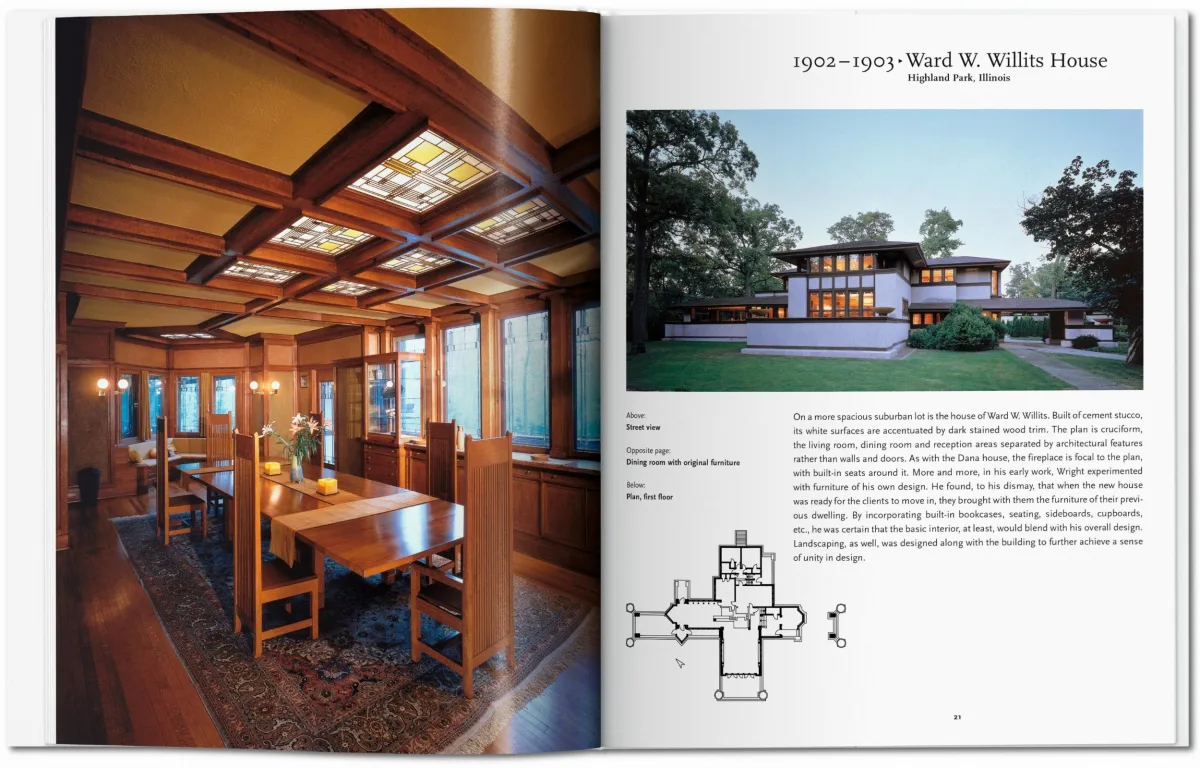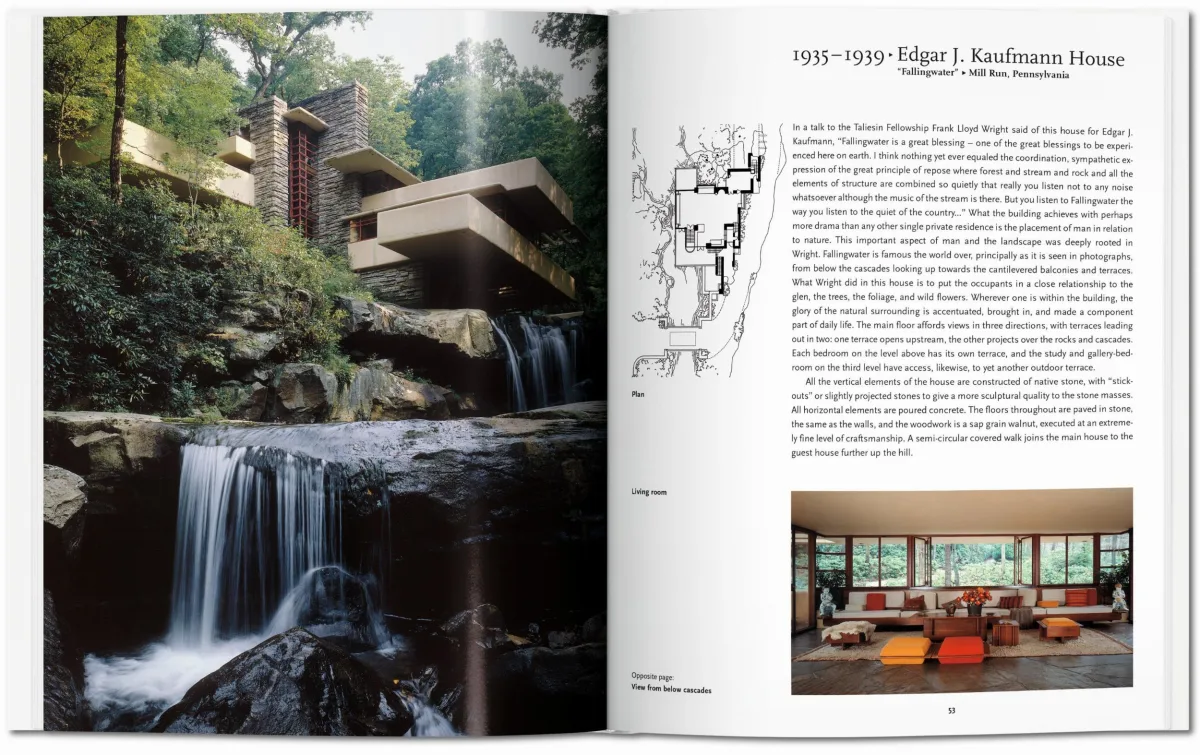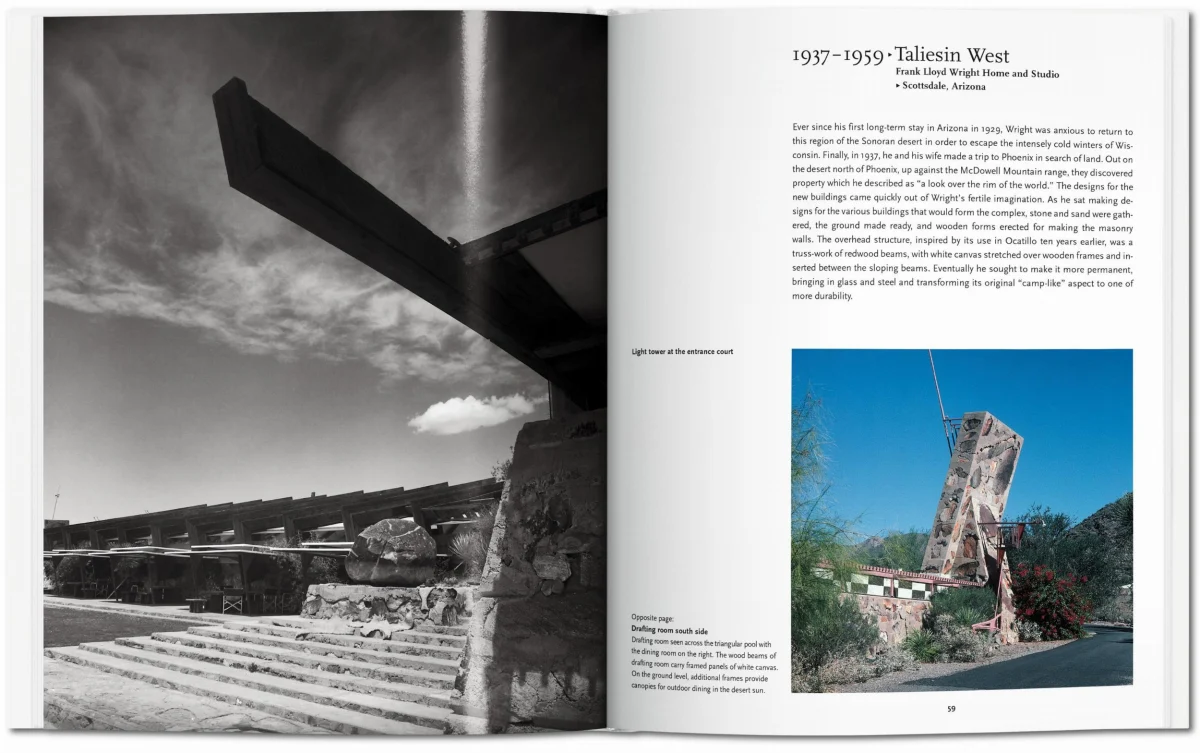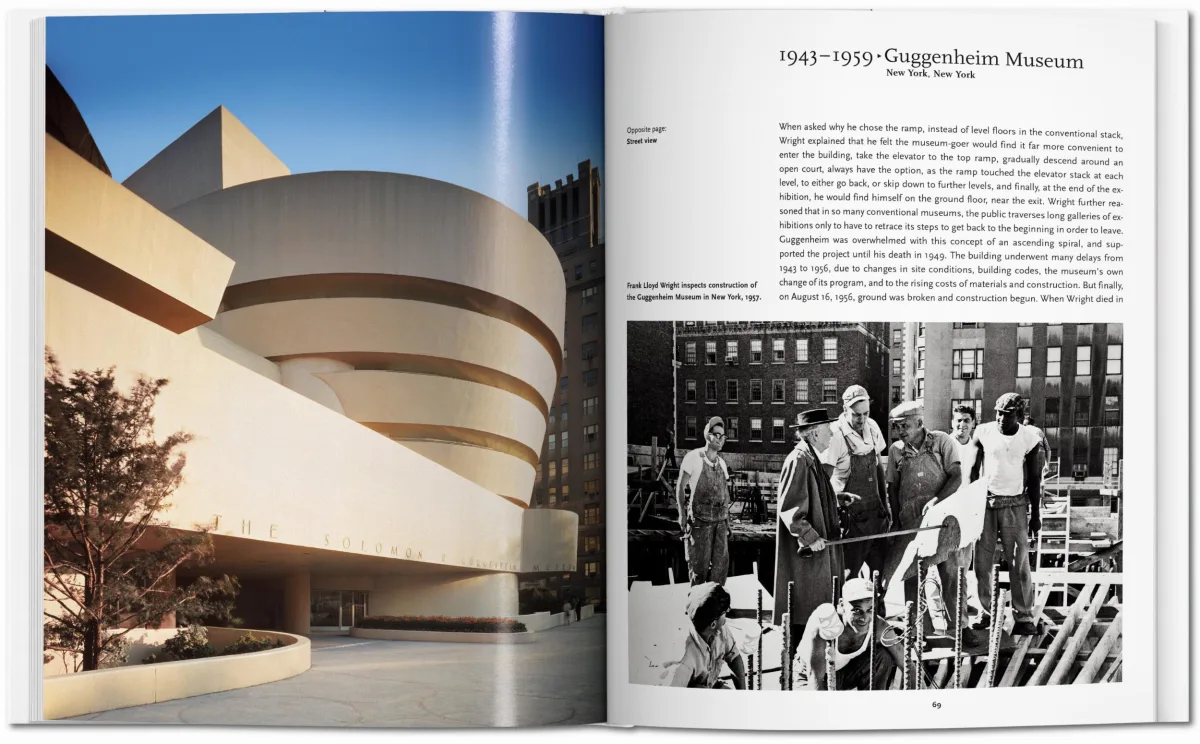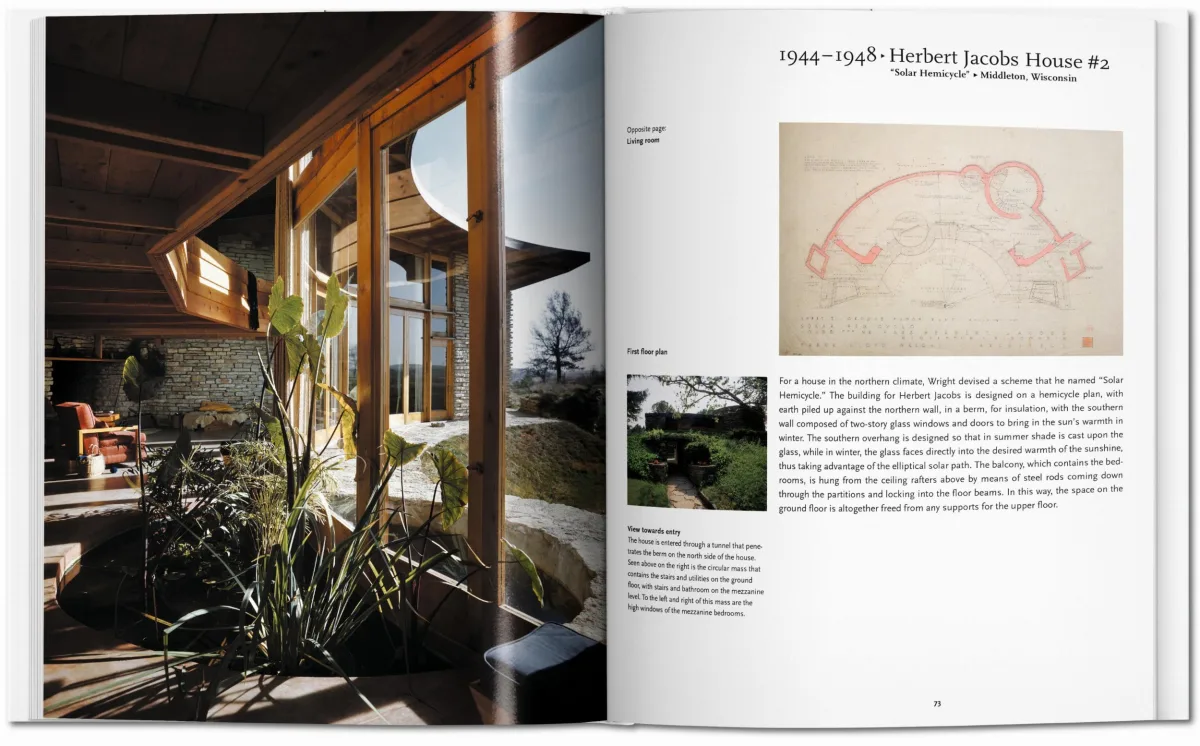F.L. Wright
20Edition: EnglishAvailability: In Stock
F.L. Wright
20That’s Wright!
One of the greatest pioneers in the history of architecture
Wright’s work is distinguished by its harmony with humanity and its environment, a philosophy he called organic architecture, and which found its paradigm at Fallingwater, a house in rural Pennsylvania, cited by the American Institute of Architects as “the best all-time work of American architecture.” Wright also made a particular mark with his use of industrial materials, and by the simple L or T plan of his Prairie House which became a model for rural architecture across America. Wright was also often involved in many of the interior elements of his buildings, such as the furniture and stained glass, paying particular attention to the balance between individual needs and community activity.
Exploring Wright’s aspirations to augment American society through architecture, this book offers a concise introduction to his at once technological and Romantic response to the practical challenges of middle-class Americans.
The author
Bruce Brooks Pfeiffer (1930–2017) was Frank Lloyd Wright’s apprentice at the Taliesin Fellowship until he attended the École Nationale des Beaux-Arts in Paris. In 1958, he returned to continue his apprenticeship with Wright until his death in 1959. Pfeiffer established the Frank Lloyd Wright Foundation Archives, where he catalogued the collections of Wright’s drawings, manuscripts, letters, and other documents. He was also the author of numerous publications on Wright’s life and work.
The editor
Peter Gössel runs an agency for museum and exhibition design. He has published TASCHEN monographs on Julius Shulman, R. M. Schindler, John Lautner, and Richard Neutra, as well as several titles in the Basic Architecture series.
F.L. Wright
Hardcover, 21 x 26 cm, 0.61 kg, 96 pagesISBN 978-3-8365-6049-8
Edition: EnglishBorn back in 1985, the Basic Art Series has evolved into the best-selling art book collection ever published. Each book in TASCHEN’s Basic Architecture series features:
- an introduction to the life and work of the architect
- the major works in chronological order
- information about the clients, architectural preconditions as well as construction problems and resolutions
- a list of all the selected works and a map indicating the locations of the best and most famous buildings
- approximately 120 illustrations (photographs, sketches, drafts, and plans)
5

